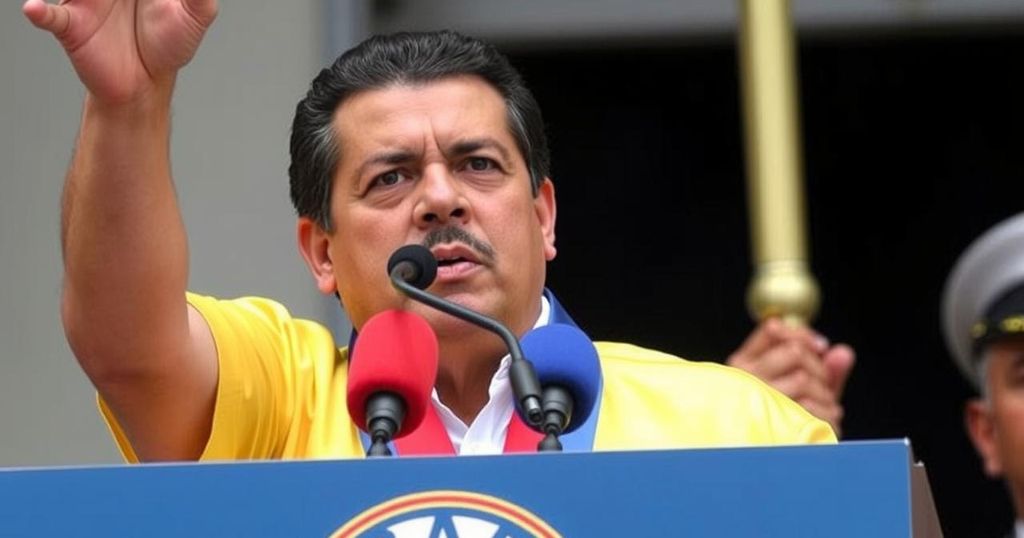Nicolás Maduro is set to be sworn in for a third term amid allegations of electoral fraud and significant opposition protests. María Corina Machado, a prominent opposition leader, faced detention during these protests. International leaders are condemning the Venezuelan government’s actions, while Maduro’s legitimacy remains in question due to lack of transparency in the election results.
Nicolás Maduro is poised to commence his third term as the President of Venezuela, extending his controversial rule until 2031. This inauguration comes amid credible allegations that his opponent, Edmundo González, actually secured victory in the recent election. Despite widespread protests and claims of electoral misconduct, Maduro’s regime continues to hold onto power, dismissing opposition claims as misinformation. The situation was exacerbated by an incident involving opposition leader María Corina Machado, who was reportedly detained by security forces during protests demanding her party’s recognition.
The opposition asserts that the results reported by Maduro’s government are fabricated, supported by data collected from electronic voting machines indicating González received substantially more votes. International backlash followed the elections, with accusations of repression against demonstrators, resulting in over 2,000 arrests and numerous fatalities. The situation has gained attention globally, prompting leaders worldwide to condemn the Venezuelan government’s actions and express support for the opposition.
The upcoming inauguration is further complicated by the absence of key international figures; Colombia’s President Gustavo Petro declined attendance due to recent detentions related to opposition activities. The atmosphere surrounding the inauguration underscores ongoing civil unrest and a deepening political crisis, leaving many questioning the legitimacy of Maduro’s rule and the state of democracy in Venezuela.
The political climate in Venezuela under Nicolás Maduro has been characterized by significant tension and conflict. Following his re-election, widely criticized for lack of fairness and transparency, Maduro faces a united opposition pushing for systemic change. The current situation illustrates the struggle between government suppression and the people’s desire for democratic governance, highlighted by the involvement of María Corina Machado and Edmundo González. Allegations of electoral fraud persist, complicating the governance landscape in Venezuela, beset by civil protests and human rights violations.
In summary, Nicolás Maduro’s impending swearing-in for a third term raises serious questions regarding electoral integrity and civil rights in Venezuela. Despite credible evidence favoring opposition claims of electoral victory, the government has maintained its authoritative grip. The international community has responded with condemnation, and ongoing protests underscore the urgency of addressing democratic processes in Venezuela. The ongoing conflict suggests that the future political landscape remains uncertain as demands for accountability continue to reverberate throughout the region.
Original Source: apnews.com






